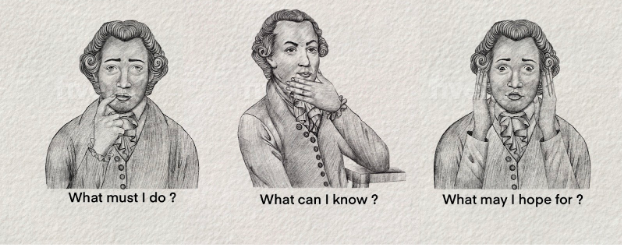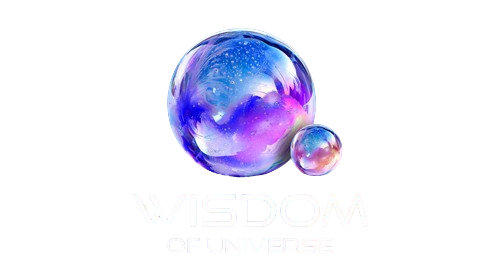Who is Immanuel Kant? He is in fact one of the most influential philosophers of the 18th century. His great work had and will lead humanity towards morality by duty instead of attachment to consequences. He believed that true morality is the use of our free will to act according to the duty of doing the “right thing” instead of the desired result derived from that action. This topic will guide us to be true moral agents of the Divine will of God or as may be called Divine Source. It is not an easy topic to understand, digest or even follow because of its deep-rooted nature of morality which is difficult for the average person to abide by and practice. One has to be serious in their spiritual journey and aspire to earnestly want to be aligned with the Divine. You have been warned! So, let’s dive in to understand more now.

Immanuel Kant was born on 22nd of April in the year 1724 in the kingdom of Prussia which is the present day Kaliningrad, Russia. He was a German philosopher whose work had influenced modern Western philosophy and was widely known as “Father of modern ethics”. He believed that reason is the source of morality. He was also a deontologist.
Deontology ethics holds that an action is considered morally good because of some characteristics of the action itself, not because the product of the action is good or beneficial. The act is performed as an obligatory duty of a morally “right thing” to do instead of the advantages or desire to do so because of its outcome. According to Kant, the only thing that is good in itself is the “

good will”. The will that we use where intention derives from which drives our actions will be good when it acts from duty. He taught to act only “always at the same time as an end, never merely as a means”. What an “end” means is that the reason for the act will be the final reason to act without any benefit, intrinsically meaning to act out of unconditional love. The act will be unconditional with no attachment to its outcome. Whereas a “means” will be a conditioned reason for doing something in order to get some benefit or achieve something out of it. There can be many “means” for doing something in order to get a final result of an “end”. To Kant, it is morally inadequate and in fact unethical to do something as a result of wanting to get something out of it. Kant argued that when we understand our nature as rational individuals, we will understand and use our reasoning mind to behave in a certain way, in accordance with an intrinsic moral compass within us as a guide to objective moral law. It is independent of what we were being told how we should behave, what benefits we may get, regardless of how others look at us but acting from a sense of duty from which we knew it to be “right”. “A right is a right”; “A wrong is a wrong”. We can’t “right a wrong” nor can we “wrong a right”. It doesn’t matter the outcome, it does matter the intention behind the action. If the action was done out of a means to get something out of it, this action is considered morally declined. Nonetheless, if the action was done out of an intention as a moral duty with which it is the “right thing” to do, this act is considered ethical and moral. Duties are performed as an imperative “ought to do actions” which is by reason of morality.

As children of God as well as Co-creators, we want to be useful and do things in congruence to the divine will of God. “Ought to do actions” are ideas implicit within us as a guiding force to perform as duty to others. This is exactly what the Golden Rule is all about, “Do not do unto others what you do not wish others to do unto you; do unto others what you wish others do unto you.” When we are nice to others, we are doing it as an “ought to” duty in compliance with the Golden Rule. By the same token, we are also by duty, morally inclined not to mistreat others as well. There are no benefits or outcomes attached to it with such. It all depends on the intention behind the action.

An example to explain further will be, for instance there was a donation drive for charity funds to do a good cause and there were three people who came forward to donate.
Person A was having thoughts at the back of his mind like this “I will donate because I know that I will get merits and I will be blessed for doing this.”
For Person B, his thoughts were like this “my wife wanted me to do something good with this sum of money. And wow, just nice, this donation drive is exactly what I need! I better do it before she starts nagging at me”
And what Person C’s thoughts were “Oh, there is a donation drive! Ok, now let me think….There is a need here. So, can I part with some money since there is a need and I can fulfill it? Well, ok, I think I can do this. Let me part with some money since I can fulfill this need.”
With these three people, the results were the same. They all did something good and admirable. The act itself was explicitly good, however, according to Kant, only one is morally ethical. And who is it? Yes, you guessed it, right! It’s Person C. Why? Let’s look at the intention of Person A. He is doing this donation in order to get merits out of it. It is “doing something to get something”. This defies what Kant defines as not having a means to get the end. The reason for the donation was because he wanted merit. So, this thought was already not compliant to what Kant proposed. And what about Person B? This was a bit less obvious but still insufficiently morally good. Although it was not done out of a self-centered reason like Person A but this Person B did the action out of pleasing his wife! The result of the donation was the reason as a means to satisfy his wife. This act is also unethical to Kant because it was done out of a “conditioned” reason for doing so. And now when it comes to Person C, he fulfills what Kant deemed as ethical and morally good. This is because he did this without any reason for some other goal or desire other than it was a need that he thought he could fulfill with moral duty.
Another example of his categorical imperative of what he means on the importance of reasoning instead of other types of imperatives will be when someone decides to be helpful to his colleagues by feelings and emotions on a good day. But decided not to when one day he quarreled with his wife. He could be doing something good and helpful for someone even if the act itself is inherently good. Since, it was done out of “feelings” which was an emotional triggered response to the act which was by no means done out of reasoning where it became a means instead of an end. By feelings and emotions, it cannot direct one’s action as it does not go through the mental processing of what is right and ought to do. The act of being helpful to his colleagues should be done by reasoning where it was out of compassion or unconditional love with no attaching beneficial outcome but to bless someone’s day out of goodwill.

What about Kant’s attitude on lying? To him, there is no good reason to propose that any lie will be right, even if it was done out of a good reason as “white lies”. A lie is a lie. A wrong is a wrong and how can we “right” a “wrong”? The argument here is, when we hide the truth by saying “white lies”, we are doing it as a means because there is a reason to do so instead of it as an absolute end where there is no conditioned attachment to the outcome. There will be others who may think that it is alright to lie under very critical situations where one may want to hide the truth under life and death situations. However, it is still morally wrong to take away and infringe the free will of the person involved by removing the chance for that person to learn from their personal karma from which they have to choose from their own free will to react in those particular circumstances. Furthermore, we do not have to lie in order to help. We just do not need to answer if we do not want to. You can just simply choose not to reply to that question.

We are who we are not because of what was expected of us and what others say or think. Whoever that authoritative figure may be. A highly esteemed religious leader does not dictate our moral values or any text which may be regarded as the ultimate truth to follow. When the statement or requirement for us to act upon does not fit into the morality of our reasoning mind which is connected to the intellectual mind of the Divine. We are following blindly and disregarding the intellectual gifts bestowed by God which we are supposed to use! If what does not sit well within, it will continue to cause struggles and conflicts within us because our True Self does not agree with unethical morality no matter how much faith was put into it. The more faith you put into something which is not in accordance with the nature of our true and loving Divine Source or God, the more we are in discordance and never in peace. What will sit well within us will be intuitively confirmed to be divine truth with no contention but rather a sense of loving guided peace and security. Since, when we are doing the “right thing” because we know deep down that this is in alignment with the Divine. There will be an unshakable security knowing that it is right for the reason that we did use our reasoning mind to discern what is truly right and wrong.

Kant implores us to use our reasoning mind to abide by moral duty as a guide to living our lives. We are who we are not according to what others expect of us, how others see us or even what others do or say. We are who we are because we are secured in ourselves as who we are with the aim of being a responsible and morally guided person by Divine truth from within. If others are bad to us does not make us behave and act in a bad way towards them. We are who we are based on who we believe and know ourselves to be and will behave and be nice to them notwithstanding, in a good way as an act of moral duty because we are morally good. If someone was bad to us and we treat them as bad as they did to us, we are no better than them. We will be who we are to be as good and kind because we are following a principle guided internally from within to behave according to the moral values embedded deep within our heart. Stand steadfast in being good out of reasoning by doing the “right thing” all the time. Shine our Light and be a beacon for others. Be a true warrior of the Light and be divinely guided so that we will act in unconditional love by reason of wisdom. Connect our intellect mind by reasoning to do right, with the Divine intellect to level up in consciousness. This may be a difficult path but definitely a right path of anchored truth, unconditional love in action and peace in our hearts.
